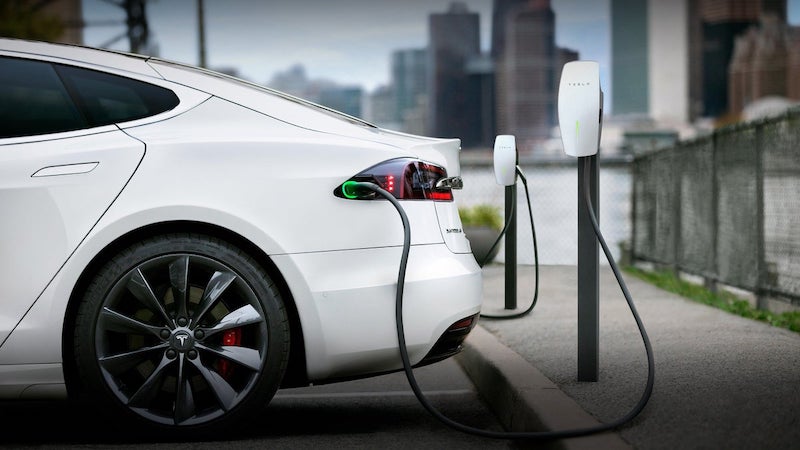Electric vehicles today make up only a minuscule portion of the auto sales market, but according to a recent survey of automotive executives, EVs will make up 52% of the world’s major markets by 2030. The recent announcement by car rental giant Hertz puts the writing on the wall about EVs emerging as the future for the automotive industry.
In late October, Hertz announced an initial order of 100,000 Teslas by the end of 2022, as well as new EV charging infrastructure across the company’s global operations.
The Hertz announcement followed moves by Chrysler, General Motors and Ford committing much of their future production to EVs, expecting as much as half of their fleets to be comprised of EVs within the next 10 years. And that expansion isn’t just for autos, but also for light trucks.
The Ford F-Series, America’s best-selling truck for 44 years, announced the 2022 F-150 Lightning model in May. The F-150 Lightning provides a Ford Intelligent BackUp Power feature that can provide full-home power for up to three days on a fully charged battery, according to the company.
“For both Ford and the American auto industry, F-150 Lightning represents a defining moment as we progress toward a zero-emissions, digitally connected future,” said Bill Ford, executive chair, Ford Motor Company, in a prepared statement. “F-Series is America’s best-selling truck for 44 years, the backbone of work across the country, and a trusted icon for generations of customers. Now we are revolutionizing it for a new generation.”
The company called the F-150 Lightning ‘the pillar of the company’s more than $22 billion global electric vehicle plan to lead electrification in areas of strength.’ Ford is starting with zero-emissions versions of its most popular and best-loved franchises – Mustang, Transit and F-150 – with much more to come in the years ahead, the company promised.
“Electric vehicles are now mainstream, and we’ve only just begun to see rising global demand and interest,” said Hertz interim CEO Mark Fields, in a prepared statement. “The new Hertz is going to lead the way as a mobility company, starting with the largest EV rental fleet in North America and a commitment to grow our EV fleet and provide the best rental and recharging experience for leisure and business customers around the world.”
Hertz is also installing thousands of chargers throughout its location network. Customers who rent a Tesla Model 3 will have access to 3,000 Tesla supercharging stations throughout the U.S. and Europe.
The addition of the charging stations is perhaps even more important than the announcement of the planned EV purchases. Range anxiety is one of the biggest hurdles EVs face before becoming a more significant portion of the auto and sustainability market.
The top selling EVs fromTesla,Chevy,Ford, and Volkswagen each have a range of about 250 miles – enough for most commutes, and even for short trips – as long as one has enough time to wait the hours it takes to fully recharge the battery.
But extended ranges, which have increased about 15%, and large adoption of charging stations, like the Hertz announcement, will alleviate many of those fears. As the technology evolves the range of the vehicles is bound to increase and reducing charging time is key to enticing consumers to choose a more sustainable option and go electric.
Many believe low US sales result from the lack of variety in model availability. Brian Gu, President of Chinese electric automaker XPeng, states in order to move beyond first adopters, new technology needs to hit 10% of sales. As more EV models hit the market, EV sales will rise.
Price is another factor that keeps some away from EVs today.As gas powered cars are becoming more expensive, the price difference between plug-in models and their conventional counterparts is shrinking.
According to a Pew survey, 39% of U.S. consumers say they are likely to consider an electric vehicle the next time they are in the market for a new vehicle. Even with the US slowly lagging behind, global EV sales grew 200% in the last year.
Even with that kind of growth, EVs will still comprise only a very small share of the market for several years. However, with the commitments from the major automakers, the continued expansion of charging stations, and concerns about CO2 emissions and climate change; there is little question that EVs will represent the future of the automotive industry. The world’s sustainability efforts count on it.



